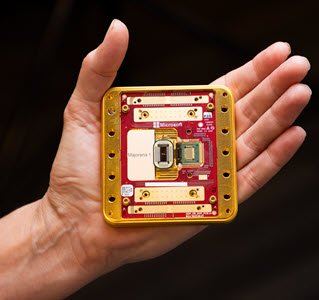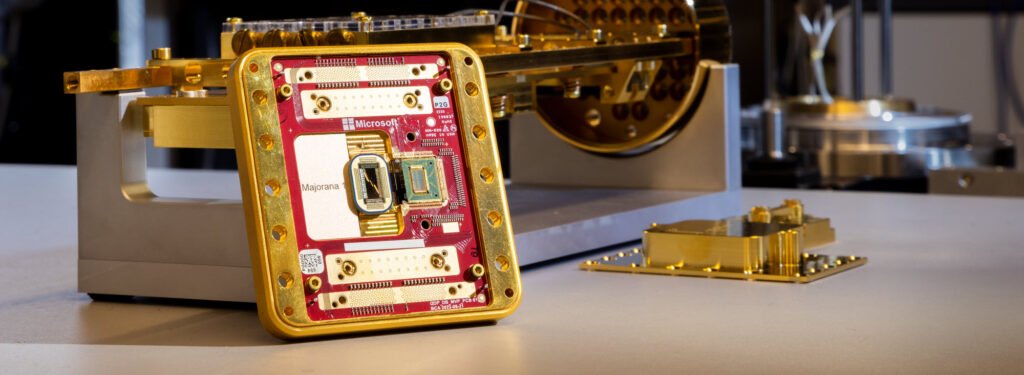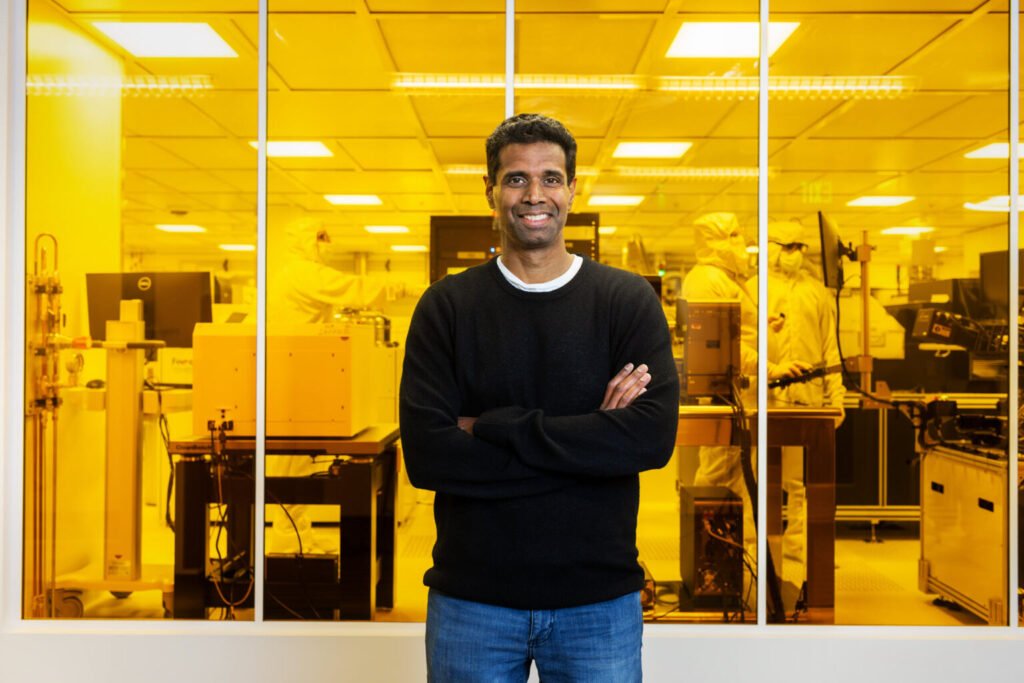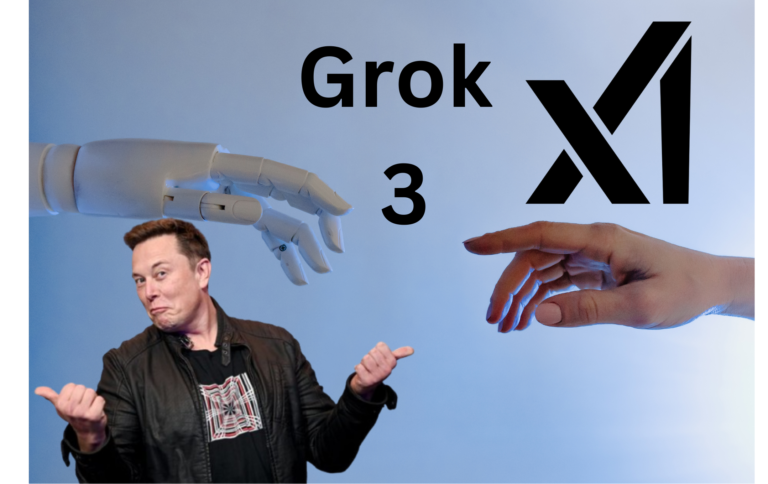
Topoconductor– Microsoft’s new Majorana 1 chip- Microsoft’s innovation is centered around the world’s first “topoconductor,” a novel material that exists outside the traditional states of solid, liquid, or gas. This distinctive characteristic enables the development of quantum systems that are more stable and scalable than today’s delicate designs.
Quantum computing has often been viewed as a distant technology that might take decades to become viable. However, Microsoft now suggests it could be much closer to reality.
The company has introduced a new chip designed to speed up quantum computer development, potentially condensing an entire quantum system into a device smaller than a human palm.
Microsoft likens this advancement to the creation of semiconductors, which transformed electronics by making devices more compact while enhancing processing power. If successful, this breakthrough could make quantum computing more dependable and widely accessible.
Whole new state of matter: Topoconductor– Microsoft’s new Majorana 1 chip
“Our leadership has been dedicated to this program for the past 17 years, making it the longest-running research initiative in the company,” says Zulfi Alam, corporate vice president of quantum at Microsoft.
“Now, after nearly two decades, we are delivering results that are not only remarkable but also tangible. These advancements will fundamentally reshape the next phase of quantum computing.”

The topoconductor, or topological superconductor, represents an entirely new class of material capable of forming a unique state of matter—“not a solid, liquid, or gas, but a topological state.” This breakthrough material enables the creation of a “more stable qubit that is compact, fast, and digitally controllable.”
To achieve this, Microsoft researchers developed a completely new materials stack composed of indium arsenide and aluminum. According to the company, much of this material was designed and fabricated “atom by atom.”
The goal was to generate new quantum particles known as Majoranas and harness their unique properties to push quantum computing forward. “The world’s first Topological Core, which powers the Majorana 1, is built for reliability, incorporating error resistance at the hardware level to enhance stability,” Microsoft explains.
Challenges and Competition: Topoconductor– Microsoft’s new Majorana 1 chip
Microsoft’s strategy has drawn the interest of the U.S. Defense Advanced Research Projects Agency (DARPA), which has selected the company’s topoconductor as one of two potential paths to developing an industrially viable quantum computer by 2033.
The other competitor, PsiQuantum, is pursuing a system based on silicon-based photonic technology, which utilizes light waves rather than Microsoft’s innovative state of matter.
Unlike companies such as Google, which have concentrated on existing quantum computing techniques, Microsoft has opted for a more gradual but robust approach. It has invested in topological qubits, which leverage a newly discovered emergent particle known as a Majorana fermion. These particles had never been observed before and had to be artificially created using magnetic fields and superconductors.

Although Microsoft has encountered setbacks in the past, including a withdrawn research paper on topological qubits, the company now seems more confident in its technology.
Microsoft is far from the only tech company developing quantum chips. Last year, Google introduced the Willow chip, which it claimed could solve tasks that would take a traditional computer 10 septillion years (a 1 followed by 25 zeros) to complete.
Intel has also developed multiple quantum chips, including the Tunnel Falls silicon spin qubit chip and the Pando Tree millikelvin quantum research control chip. IBM, on the other hand, created the world’s largest quantum chip, Condor, along with Heron, its most powerful quantum processor to date.
What sets Microsoft’s chip apart as a breakthrough is its use of an entirely new state of matter for its quantum chip architecture. Unlike Google, Intel, IBM, and others that rely on electrons, Microsoft’s Majorana 1 chip utilizes Majorana particles.
What is the path forward? Topoconductor– Microsoft’s new Majorana 1 chip
Despite the enthusiasm, challenges persist. Booth pointed out that while Microsoft’s design is more resilient to interference, it is also more intricate to construct.
Competing with Google’s more advanced quantum systems will be difficult, but if Microsoft’s strategy succeeds, it could revolutionize industries such as cybersecurity and materials science.
Quantum computing is steadily approaching reality, but whether Microsoft can accelerate this transformation remains uncertain.
You can also read. Apple’s Modem Chip in iPhone 16e
You can follow us on social media platforms.







1 thought on “Microsoft’s new Majorana 1 chip that could bring quantum computing into the mainstream within years.”